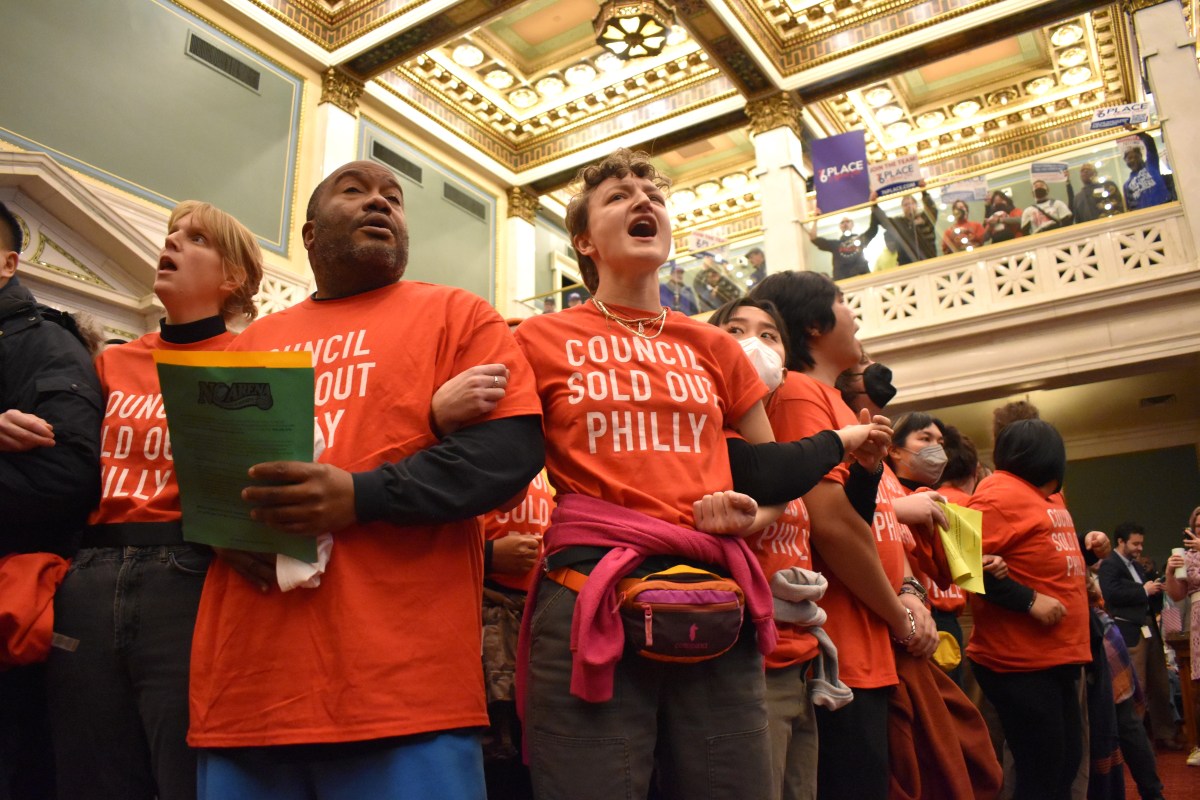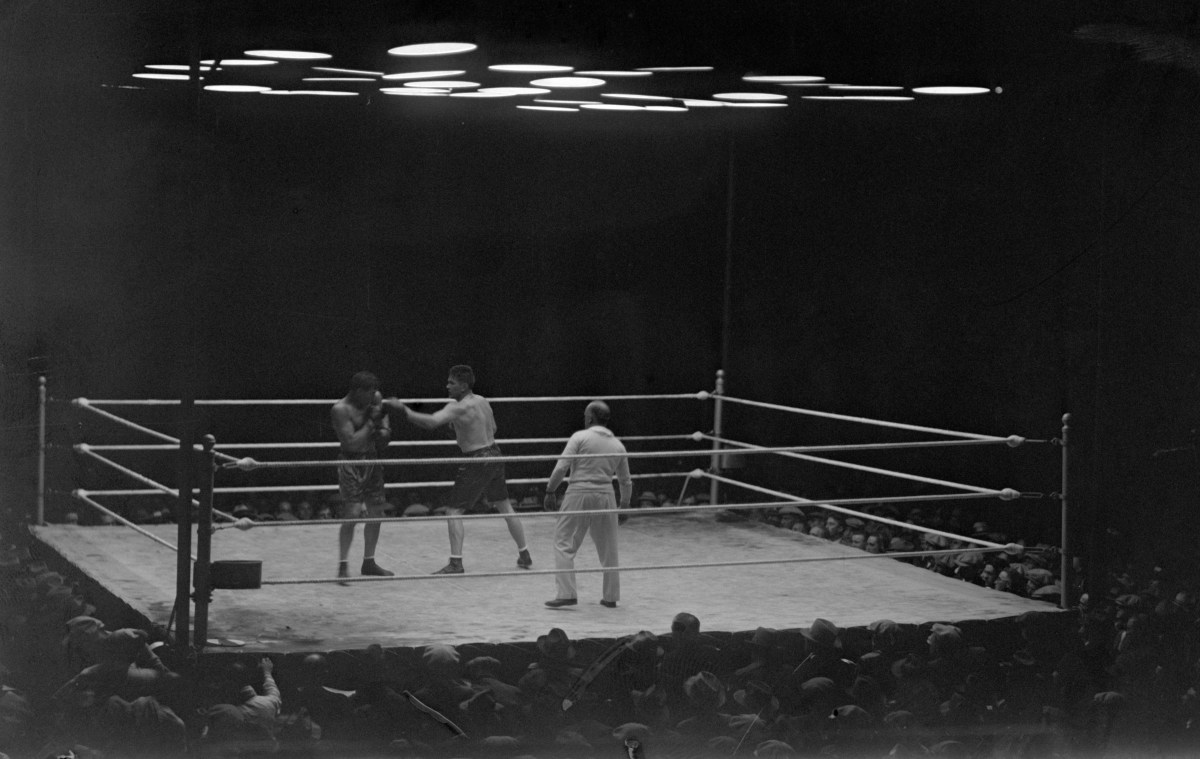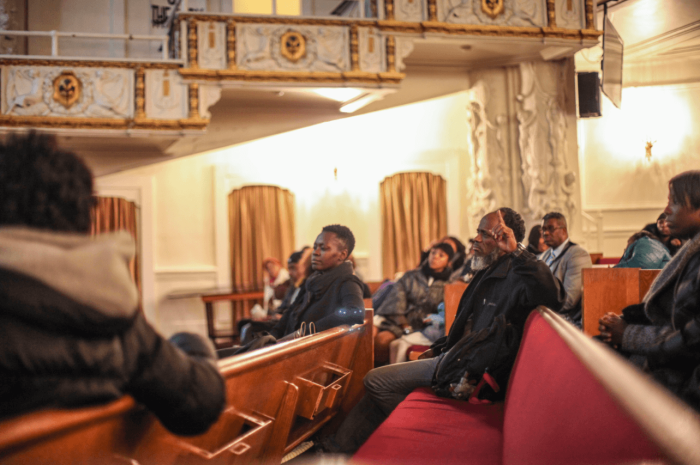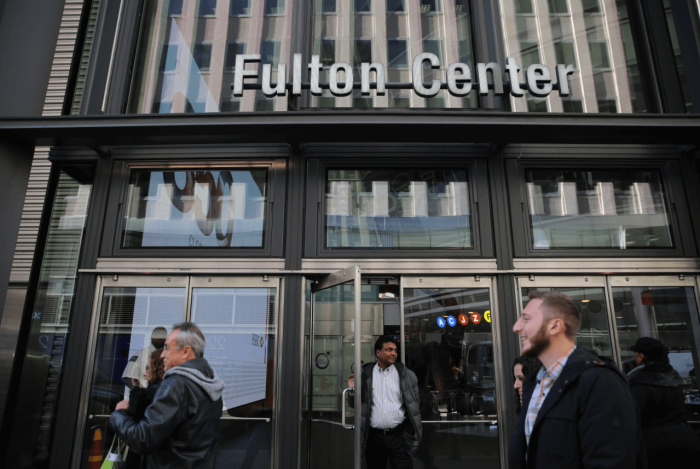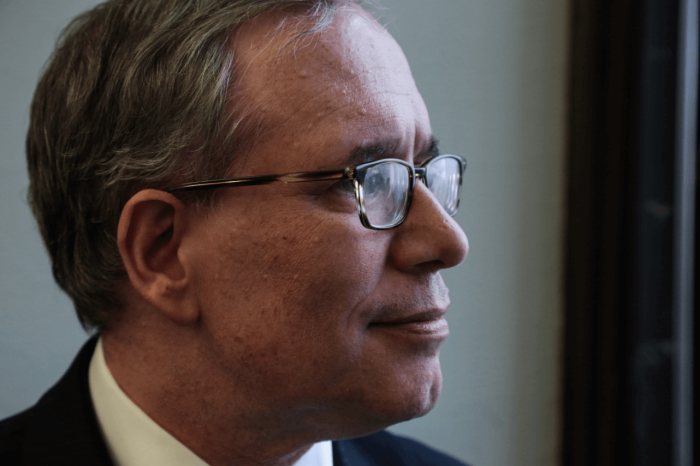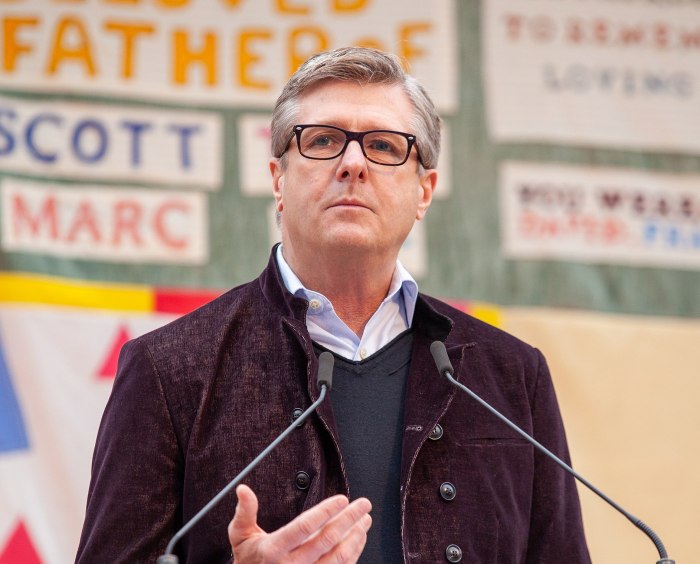Lt. Gov. Kathy Hochul is stepping out of the shadows and hitting college pavements to promote the governor’s efforts to require uniform policies for dealing with sexual assaults on campus.
With nine days left in the legislative session, Hochul is taking center stage when it comes to Gov. Andrew Cuomo’s “Enough is Enough” campaign.
If passed, the legislation would extend SUNY’s universal sexual assault policy — which requiresthat both parties verbally consent to a sexal act — to all colleges across the state. So far, 11 private schools have voluntarily adopted the policy. Metro sat down with Hochul to discuss the problem of sexual assault on state campuses and what the strictest university policy in the state might change. Metro: You’ve been touring college campuses talking about sexual assault. What are some of the stories that stay with you?
Hochul: Mary, it’s not her real name, lives in Buffalo. We did a number of round tables there, and she spoke about the fact that she had been assaulted two years earlier. She thought that she was at fault, she felt a lot of guilt. After the assault, she started really withdrawing. And she didn’t ask for help, it affected her grades, attitude, friendships. Finally, two months before she was graduating, had the courage to come forward and speak at a forum, say what happened to her and say I don’t want this to happen to anyone else.And I think the message is that we need to create an environment that people will talk about this. Congresswoman Pelosi has called campus sexual assault an epidemic. At the same time, we know that colleges haven’t reported accurate numbers. If we don’t know the numbers, how can we call it an epidemic? The 1 in 5 statistic has been criticized as inaccurate by the Times editorial board. I’ve not done the studies myself. All I know is there are 103 schools under investigation in the country. That says something is going on, and when you think about how difficult it is to get to that point. The Department of Justice says only five percent are reported, that one I feel confident of. There’s an awful lot that aren’t. It doesn’t matter if we label it an epidemic or not, that’s not the standard for whether or not we’re going to taken action. I don’t need statistics to tell me that there’s a problem. Since the SUNY policy changed, we’ve seen an explosion of activism. You have Emma Sulkowicz’s mattress project at Columbia, but we’ve also seen the Rolling Stone article on a sexual assault case at UVA disproven. How have these things propelled, or detracted, from the momentum? Any major issue there’s going to be individual cases that either speak to or against your position. In policy, we cannot be pulled into a particular direction because one part story, we need to find the policies and the law that’s going to affect the most people. The culture right now has gotta change. Stories that come out … at least it’s added to the conversation. This is an issue that no one ever spoke about, ever. We have to let men know the first day they step on campus that if they cross the line, against a man or a woman, there are going to be consequences, right from orientation on, we have to let the young people know victims that they have rights and the campus will take care of them. And I think all the attention is good, it reminds me of the effort back in the late 70s when my mother was an advocate for victims of domestic violence. It was silent killer, there were a lot of women being abused by their husbands, sometimes even to death. It’s a different mindset now. The same should happen with perpetrators of sexual assault on campuses. They should be isolated, they should be ostracized, there should be a climate that says you crossed the line, you are not getting our support, whether you are a star athlete or on a team, president of the student council, it doesn’t matter who you are. I think we’re going to get there. When should the ostracizing start? In the Columbia case, Sulkowicz’s alleged rapist wasn’t criminally charged by the DA or the university.
Certainly, we have to protect the rights of the accused and the state law does that and the constitution does that, there are safeguards in place. But if we only talk about the exceptions, we’re going to continue to feel stifled, victims will still feel like they can’t come forward with their stories if they’re not going to be treated in a way that is supportive and helps start the healing process. We are sensitive to protecting the rights of the accused but not to the detriment to where the status quo continues and women won’t come forward. If this universal policy was in place at Columbia a few years ago, how might this story be different?
I’m not going to speak to individual cases, but I do know that flipping upside down the definition of what consent is, we are saying ‘yes means yes.’ That means there need to be willing, knowledgeable consent throughout the sexual encounter that both sides agree to where it’s heading. She cannot be under the influence of alcohol and unable to make a decision, drugged on a date rape drug, because right now, an accused can say ‘well, she never said no.’ Just changing that will change the outcome of a lot of cases, when people come to a college campus in New York, you gotta know that. And that should be a warning for anyone looking to cross that line, you could be affected for the rest of your life. People need to know that when they step foot on a college campus now. Is it too soon to tell if the SUNY policy has changed anything?
I was at Binghamton University last week, talking about this with administrators, and I think it has totally changed the attitude on campus. It actually improves our image. If you’re a parent anywhere in the country trying to decide where your student is going to go, considering colleges, and you know New York State has the strongest sexual assault policy in the country, I as a mother, take comfort in that. I’m okay with the fact they’re investigating campuses, because it’s going on everywhere, and if I know there’s an active investigation it means a university is cooperating. Those are the colleges I admire. Gov. Andrew Cuomo has said campus sex assault is a matter that should be handled by police, not administrators. When an incident does happen on campus under the new policy, what is the responsibility of the victim? The bill of rights lays out the options for the survivor. That’s important because currently, most of them it has been handled internally. If a young person says I want to keep it internally, we have to respect that. We can’t mandate that. But we also have to let them know that you 100 percent have the right to go to outside law enforcement. We did a roundtable in Buffalo, and the chief of police said everytime this happens, I don’t understand why we don’t get a call. We’re used to this, we have a female detective who is used to being an advocate, the data collection is important. We have evidence to collect evidence for what Sen. KirstenGillibrand calls a serial rapist. I can’t ask a young woman who has been traumatized to turn her life upside down and go out and publicly say what happened to her. If she does it’s a good thing. But she should know that if she does not want to be the face of that prosecution, gathering the data from her case means someone else can be prevented later on. If she wants to keep in internally, we’re elevating this as an issue. We’re trained, we know how to handle this issue. Administrators are going to get it right. What’s the role of men on campus moving forward?
They have a critical role. And the most effective forums I’ve had have men at the table. We just did one in Rochester and the head of the Greek community was there. They are owning this now, and I’m delighted to see this. Because of all the attention, they’re willing to take a leadership role. They’re starting to create their own internal peer pressure, particular in the fraternities, because they’re reputations have taken a hit. Whether it’s a text message that goes out on Friday night: ‘hey, remember the rules,’ or on a Sunday morning ‘everybody okay?’ I’m really impressed with the leadership of young men and women on campuses. I don’t think those conversations were going on a few years ago. More survivors have been coming forward publicly the last few months. There’s a lot of critics who say there has to be healthy skepticism, especially when people are accused of sexual assault. Does there need to be more accountability? It’s a double-edged sword. You want people to be talking about it, you want people who have been legitimately harmed to get the help they need. But there are always the exceptions. And we need to be very careful to not make policy or be deterred from making policies on those cases because that’s ignoring the rights of the majority. It’s ignoring the people who have been silence over the years. Talking to survivors, so many have not talked to law enforcement because they don’t want their own name dragged through it. To see what a survivor has to go through to make their case, anybody who steps forward, it is a tough decision to make and they deserve our respect and our support.
Lt. Gov. Kathy Hochul puts herself center stage on campus sex assault
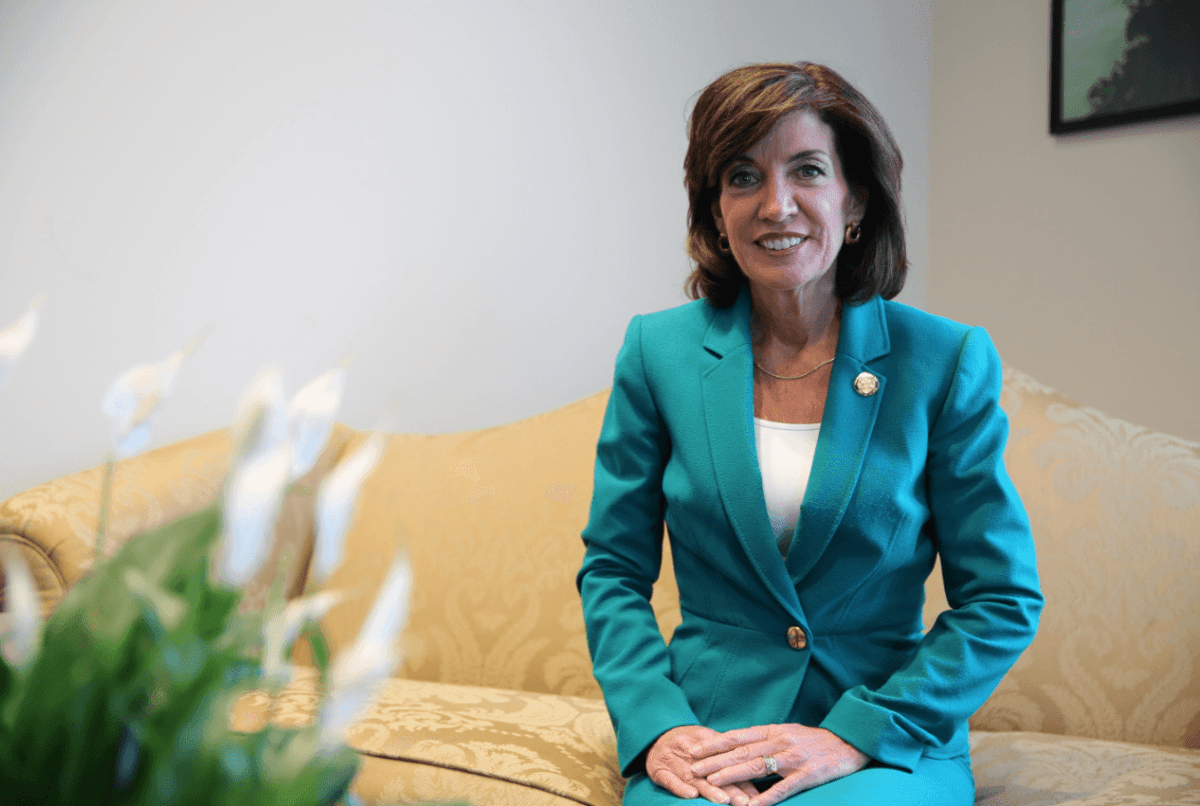
Bess Adler, Metro














